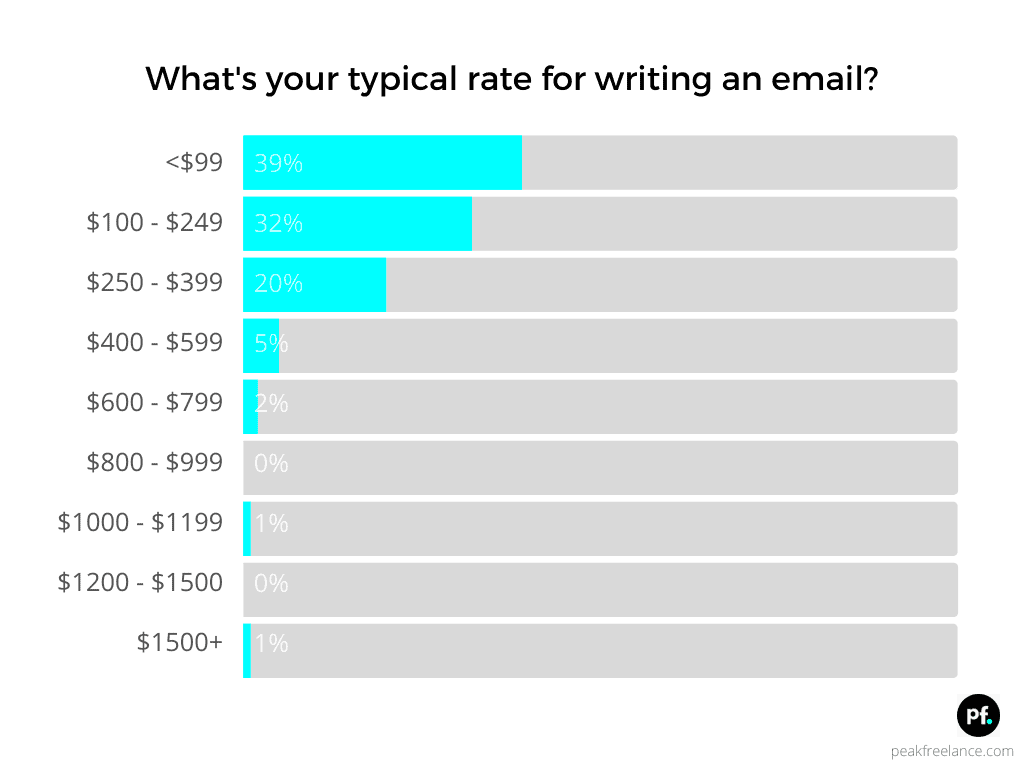Freelance writing can be a rewarding career, but one of the biggest challenges freelancers face is determining how much to charge for their services. Understanding freelance writing rates is essential for setting your prices competitively while ensuring you earn a fair wage. Many factors play into how rates are structured, including experience, niche, and client budgets. By grasping the basics of writing rates, you can position yourself effectively in the market and increase your chances of landing quality clients.
Factors That Influence Writing Rates

When it comes to setting your rates, various factors come into play. Here are some key influences:
- Experience Level: Newer writers often start with lower rates, while experienced writers can charge more due to their proven skills.
- Niche Specialization: Writers who specialize in certain fields, like tech or finance, may command higher rates because of their specialized knowledge.
- Project Complexity: More complex projects that require additional research or expertise generally justify higher rates.
- Client Budget: Understanding a client's budget can help you adjust your rates appropriately while maintaining value.
- Location: Writers in higher cost-of-living areas may charge more to cover expenses.
Also Read This: How to Start as a Freelance Designer
Average Rates for Different Types of Freelance Writing

Freelance writing rates can vary widely depending on the type of writing involved. Here’s a general breakdown of average rates:
| Type of Writing | Average Rate per Word | Average Rate per Hour |
|---|---|---|
| Blog Posts | $0.10 - $0.50 | $25 - $75 |
| Copywriting | $0.15 - $1.00 | $30 - $150 |
| Technical Writing | $0.20 - $1.50 | $40 - $100 |
| Ghostwriting | $0.20 - $2.00 | $50 - $200 |
| Social Media Content | $0.10 - $0.50 | $25 - $75 |
These rates can vary based on factors like your location, experience, and the specifics of the project. It's essential to research and determine what rates work best for your skill set and target market.
Also Read This: How to Build a Career as a Successful Freelance Writer
How to Set Your Rates as a Freelance Writer
Setting your rates as a freelance writer can feel daunting, but it’s crucial for your business's success. Your rates not only reflect your skill and experience but also determine your earning potential. Here are some steps to help you set your rates confidently.
First, consider your experience level and the value you bring to clients. Next, research the market rates for freelance writing in your niche. Look at what other writers with similar experience are charging. Here’s a simple approach:
- Assess Your Skills: Determine what skills you offer and how they benefit clients.
- Research Market Rates: Use platforms like Fiverr, Upwork, or writer forums to see what others charge.
- Calculate Your Expenses: Factor in costs like taxes, software, and time spent on each project.
- Set Your Goals: Consider how much you need to earn monthly to achieve your financial goals.
Finally, be flexible. Your rates may change over time as you gain more experience and refine your skills. Remember to keep track of what works and what doesn’t, and don’t be afraid to adjust your rates as needed.
Also Read This: How to Find Top Rated Gigs on Fiverr
Tips for Communicating Your Rates to Clients
Once you’ve set your rates, communicating them to clients can feel challenging. Clear communication helps avoid misunderstandings and ensures both parties are on the same page. Here are some tips to do it effectively:
- Be Clear and Direct: State your rates upfront in your proposals to avoid surprises.
- Explain Your Value: Articulate why your rates are set at a certain level, focusing on your skills, experience, and the value you bring.
- Provide Examples: Share past work or testimonials to back up your rates.
- Be Open to Questions: Encourage clients to ask questions about your rates, showing that you value transparency.
By being clear and confident about your rates, you create a professional impression and build trust with your clients.
Also Read This: When Does Fiverr Payout? Understanding the Payment Process
Negotiating Rates with Clients
Negotiating rates with clients is a common part of freelance writing, and it doesn’t have to be uncomfortable. Understanding how to negotiate effectively can lead to better pay and stronger client relationships. Here are some strategies to help you navigate negotiations:
- Know Your Worth: Be confident in your skills and the rates you've set. Know what you need to earn to make it worth your time.
- Be Prepared to Justify Your Rates: If a client questions your rates, be ready to explain your experience, skills, and the value of your work.
- Be Flexible: While you should stick to your worth, consider offering a discount for bulk work or long-term contracts.
- Listen to the Client: Understand their budget and constraints. This shows you care about their needs and helps find a middle ground.
Negotiation is a two-way street. By approaching it with confidence and openness, you can establish a mutually beneficial agreement.
Also Read This: How to Clear Fiverr Notifications
How to Adjust Your Rates Over Time
As a freelance writer, it’s essential to periodically review and adjust your rates. The writing industry evolves, and so do your skills and market demands. By adjusting your rates over time, you can ensure that your pricing reflects your expertise and the value you offer to clients. Here are some tips on how to do this effectively:
- Regularly Assess Your Skills: As you gain experience, your skills improve. Reflect on what you have learned and how it adds value to your work.
- Research Industry Trends: Stay updated on market rates for freelance writing. Understanding current trends helps you set competitive rates.
- Evaluate Client Feedback: Listen to client feedback on your work and pricing. If clients are consistently pleased with your results, it may be time to raise your rates.
- Consider Your Business Goals: If your income goals change or if you have additional expenses, adjusting your rates might be necessary to meet those goals.
- Gradual Increases: Instead of making drastic changes, consider small, incremental increases. This can help clients adjust to the new rates without feeling overwhelmed.
Remember, adjusting your rates is a natural part of growing your freelance business. Regular reviews ensure that you remain competitive and fairly compensated.
Also Read This: Top 10 3D Modelers on Fiverr in 2024
Frequently Asked Questions
Many freelancers have similar questions regarding rates and pricing. Here are some common queries and their answers:
- What is the best way to determine my rates?
Start by researching the market and considering your experience, skills, and expenses. It helps to look at what others in your niche charge. - Should I charge per word or per hour?
It depends on the type of writing you do. For quick projects, hourly rates might work better, while per-word rates can be suitable for longer pieces. - How often should I adjust my rates?
Consider adjusting your rates every year or whenever you feel your skills or the market conditions have changed significantly. - What if a client cannot afford my rates?
Evaluate the client’s needs. You can offer a discount for bulk work or suggest alternative services that fit their budget.
Conclusion
Setting and adjusting your rates as a freelance writer is a crucial part of building a sustainable career. By understanding how to determine your rates, communicate effectively with clients, and navigate negotiations, you can ensure that your freelance writing business thrives. Remember to stay informed about industry trends and regularly assess your skills and market demand. Ultimately, being confident in your worth and flexible in your approach will help you succeed as a freelance writer.




